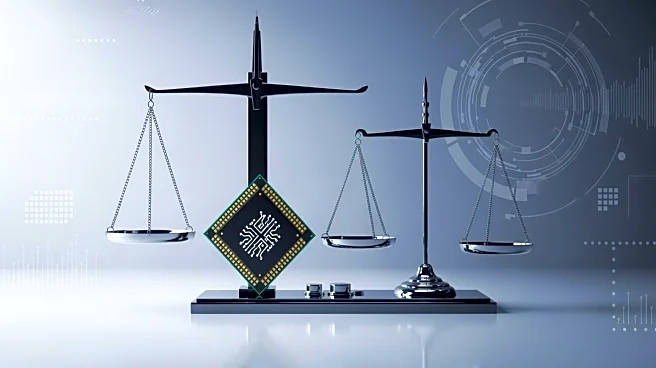What's Happening?
Artificial intelligence (AI) is transforming the hiring process by automating tasks such as job postings, resume screening, and interview scheduling. However, this efficiency brings new ethical challenges.
HR managers must ensure that AI systems align with principles of fairness, transparency, and accountability. The OECD's AI principles provide a framework for responsible AI use in hiring. Companies are encouraged to maintain human oversight and ensure that AI enhances rather than replaces human judgment in recruitment processes.
Why It's Important?
The integration of AI in hiring processes can significantly improve efficiency and reduce costs for companies. However, it also raises concerns about bias, privacy, and the potential loss of human judgment in decision-making. Ensuring ethical AI use is crucial for maintaining trust with candidates and upholding company reputations. Organizations that successfully balance AI efficiency with ethical considerations may gain a competitive advantage in attracting and retaining talent.
What's Next?
As AI continues to evolve, companies will need to develop robust governance systems to oversee AI-driven recruitment processes. This includes regular audits of AI tools to ensure compliance with ethical standards and legal requirements. HR departments may need to invest in training programs to equip staff with the skills to manage AI systems effectively. Ongoing dialogue with stakeholders, including employees and candidates, will be essential to address concerns and improve AI-assisted hiring practices.
Beyond the Headlines
The rise of AI in hiring processes highlights broader societal questions about the role of technology in the workplace. It challenges traditional HR practices and necessitates a reevaluation of how companies define and measure talent. This shift could lead to changes in labor laws and regulations to address the unique challenges posed by AI in employment contexts.









